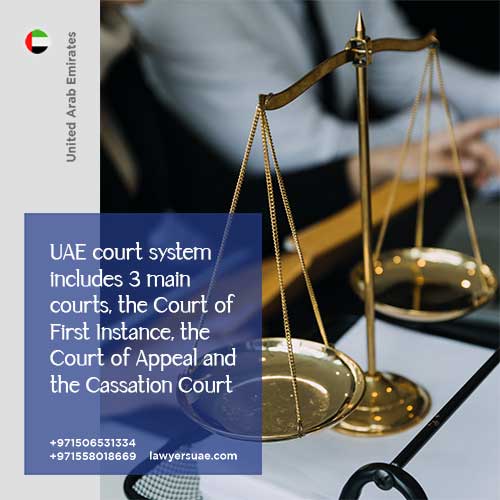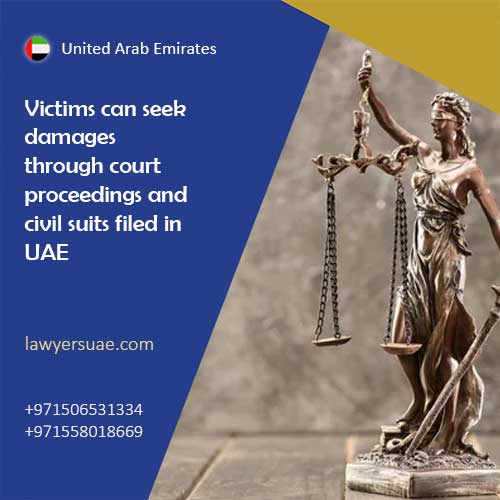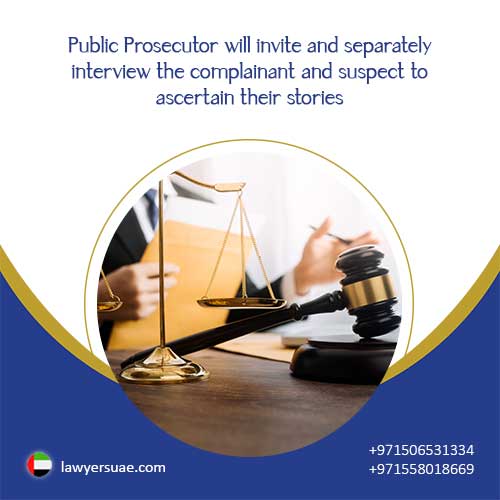UAE – Renowned Business and Tourist Destination
Apart from being one of the most beautiful countries in the world, the UAE is also a renowned business and tourist destination. As a result, the country, and Dubai especially, is a firm favourite for expatriate workers and vacationers coming from all over the world.
While Dubai is an incredibly safe and enjoyable city, it is useful for foreign visitors to understand the UAE’s legal system and how to respond if they ever become a victim of a crime.
Here, our experienced UAE criminal law attorneys explain what to expect from the criminal law system in the UAE. This page provides an overview of the criminal law process, including how to report a crime and the stages of a criminal trial.
“We want the UAE to be the global reference point for a tolerant culture, via its policies, laws and practices. No one in the Emirates is above the law and accountability.”
His Highness Sheikh Mohammed Bin Rashid Al Maktoum Is The Vice President And Prime Minister Of The United Arab Emirates, Ruler Of The Emirate Of Dubai.

Overview of the UAE Criminal Law System
The UAE criminal law system is based partly on Sharia, a body of law codified from Islamic principles. In addition to Islamic principles, the criminal process in Dubai draws regulation from the Criminal Procedures Law No 35 of 199. This law directs the filing of criminal complaints, criminal investigations, trial processes, judgments, and appeals.
The major players involved in the UAE criminal process are the victim/complainant, accused person/defendant, police, the Public Prosecutor, and the courts. Criminal trials typically start when the victim files a complaint against an accused person at a local police station. The police have the duty to investigate alleged offences, while the Public Prosecutor charges the accused person to court.
The UAE court system includes three main courts:
- The Court of First Instance: When freshly filed, all criminal cases come before this court. The court consists of a single judge who hears the case and delivers judgment. However, three judges hear and determine the case in a felony trial (which carries harsh penalties). There is no allowance for a jury trial at this stage.
- The Court of Appeal: After the Court of First Instance delivers its judgment, either party may file an appeal to the Court of Appeal. Please note that this court does not hear the matter afresh. It only has to determine if there was an error in the lower court’s judgment.
- The Cassation Court: Any person dissatisfied with the Court of Appeal’s judgment can further appeal to the Cassation Court. This court’s decision is final.
If convicted of a crime, understanding the Criminal Appeals Process in UAE is essential. An experienced criminal appeals lawyer can help identify grounds for appealing the verdict or sentence.
Classification of Offences and Crimes in UAE criminal law
Before filing a criminal complaint, it’s essential to learn the types of offences and crimes under UAE law. There are three main offence types and their penalties:
- Contraventions (Violations): This is the least harsh category or minor offence of UAE offences. They include any act or omission that attracts a punishment or penalty of no more than 10 days in jail or a maximum fine of 1,000 dirhams.
- Misdemeanours: A misdemeanour is punishable with confinement, a fine of 1,000 to 10,000 dirhams at most, or deportation. The offence or penalty may also attract Diyyat, an Islamic payment of “blood money”.
- Felonies: These are the harshest crimes under UAE law, and they are punishable by a maximum of life imprisonment, death, or Diyyat.
Are Criminal Court Fines Payable to the Victim?
No, criminal court fines are paid to the government.
Will It Cost to File a Complaint Before the Police?
There will be no cost to file a complaint with the police.
Filing A Criminal Complaint in UAE
In the UAE, you can file a criminal complaint by walking into the nearest police station, ideally close to where you suffered the crime. Although you can make the complaint orally or in writing, it must clearly set out the events that constitute the criminal offence. After filing your complaint, the police will record your version of the events in Arabic, which you will then sign.
In addition to making an oral or written statement, UAE law allows you to call witnesses to confirm your story. Witnesses can help provide additional context or lend veracity to your claim. This makes your story more believable and lends valuable assistance to the subsequent investigation.
Criminal investigation will involve attempts to confirm aspects of your story and track down the suspect. How the investigation proceeds will depend on the nature of your complaint and what agency has the power to investigate the complaint. Some of the authorities that may participate in the investigation include:
- Legal officers from the police
- Immigration
- Coastguards
- Municipality inspectors
- Border police
As part of the investigation, the authorities will interrogate the suspect and take their statement. They also have the right to provide witnesses who can corroborate their version of events.
Please note that UAE law does not require you to pay any fees before filing a criminal complaint. However, if you need the services of a criminal lawyer, then you will be responsible for their professional fees.
When will criminal proceedings commence?
A UAE criminal trial only begins when the Public Prosecutor decides to charge the suspect to court. But there are special procedures that must occur before this happens.
First, if the police have conducted a satisfactory investigation, they will refer the case to the Office of the Public Prosecutor. The Public Prosecutor has paramount powers to institute and discontinue criminal cases in UAE, so the process cannot continue without their approval.
Second, the Public Prosecutor will invite and separately interview the complainant and suspect to ascertain their stories. At this stage, either party may produce witnesses to verify their account and help the Public Prosecutor determine if a charge is necessary. Statements at this stage are also made or translated into Arabic and signed by both parties.
After this inquiry, the Public Prosecutor will determine whether to charge the suspect to court. If they make the decision to charge the suspect, then the case will proceed to trial. The charge is in the form of a document that details the alleged offence and summons the suspect (now called the accused person) to appear before the Court of First Instance. But if the Public Prosecutor decides that the complaint has no merit, then the matter ends here.
How to Report a Crime or Register a Criminal Case in UAE?
If you are a victim of a crime or know of a crime being committed, you may need to take specific steps to protect yourself and ensure that the proper authorities are notified. The following guide will provide you with information on reporting a crime or registering a criminal case in the United Arab Emirates (UAE).





How to Commence a Criminal Case in UAE?
If you have decided to commence a criminal case against another person, there are several steps that you will need to take.
1) File a police report – This is the first step in any criminal case, and you should contact the police station that has jurisdiction over the area where the crime occurred. To file a police report, you will need to fill out a report prepared by a government-approved medical examiner that documents the injuries caused by the crime. You should also try to obtain copies of any relevant police reports and witness statements if possible.
2) Prepare evidence – In addition to filing a police report, you may also want to gather evidence in support of your case. This may include, but is not limited to, the following:
- Any relevant insurance documents
- Video or photographic evidence of injuries caused by the crime. If possible, it is a good idea to take pictures of any visible injuries as soon as possible after they occur. In addition, witnesses can be used as a valuable source of evidence in many criminal cases.
- Medical records or bills documenting any medical treatment received due to the crime.
3) Contact an attorney – Once you have gathered all necessary evidence, you should contact an experienced criminal defense lawyer. An attorney can help you navigate the criminal justice system and provide invaluable advice and support.
4) File a lawsuit – If the case goes to trial, you will need to file a lawsuit to pursue criminal charges. This can be done through the civil courts.
It is important to remember that there are time limits for filing criminal cases in UAE, so it is essential to contact an attorney as soon as possible if you decide to pursue legal action.
Will the Victim Be Able to Bring Witnesses?
A victim of a crime may bring witnesses to testify in court if the case goes to trial. Generally speaking, individuals can be subpoenaed by the judge and ordered to appear in court.
If any relevant evidence is discovered after the proceedings have begun, it may be possible for the defendant or their attorney to request that new witnesses testify during a subsequent hearing.
What Types of Crimes Can Be Reported?
The following crimes can be reported to the police in UAE:
- Murder
- Homicide
- Rape
- Sexual Assault
- Burglary
- Theft
- Embezzlement
- Traffic-related cases
- Forgery
- Counterfeiting
- Drugs Offenses
- Any other crime or activity that violates the law
For incidents linked to safety or harassment, the police can be reached directly through their Aman Service on 8002626 or via an SMS to 8002828. In addition, individuals can report crimes online through the Abu Dhabi police website or at any branch of the Criminal Investigation Department (CID) in Dubai.
Does the Key Witness Have to Testify in Court?
The key witness does not have to testify in court if they do not wish. The judge might permit them to testify over closed-circuit television if they are fearful of testifying in person. The victim’s safety is always a top priority, and the court will take measures to protect them from any possible harm.
Stages of a UAE Criminal Trial: UAE Criminal Procedures Law
Criminal trials in UAE courts are conducted in Arabic. Since Arabic is the court’s language, all documents submitted before the court must also be translated into or drafted in Arabic.
The court has total control over the criminal trial and will determine how the trial proceeds according to its powers under the law. What follows is a brief explanation of the significant stages of a Dubai criminal trial:
- Arraignment: The trial begins when the court reads the charge to the accused and asks how they plead. The accused person may admit or deny the charge. If they admit the charge (and in an appropriate offence), the court will skip the following stages and go straight to verdict. If the accused person denies the charge, the trial will proceed.
- Prosecution’s case: The Public Prosecutor will present its case by making an opening statement, calling witnesses, and tendering evidence to show the accused person’s guilt.
- Accused’s case: After the prosecution, the accused may also call witnesses and tender evidence through their attorney in their defence.
- Verdict: The court will decide on the accused’s guilt after hearing the parties. Should the court find the defendant guilty, the trial will proceed to sentencing, where the court will impose punishment. But if the court decides that the accused did not commit the offence, it will acquit the accused of the charge, and the trial will end here.
- Sentencing: The nature of the offence will determine the severity of the punishment the accused faces. A contravention carries lighter sentences, while a felony will bring the harshest punishment.
- Appeal: If either the prosecution or accused person is unsatisfied with the court’s verdict, they may appeal. However, the victim does not have a right to appeal.
What If the Victim Is in Another Country?
If the victim is not located in UAE, they may still provide evidence to support a criminal case. This can be done using video conferencing, online depositions, and other evidence-gathering methods.
IF A VICTIM WANTS TO REMAIN ANONYMOUS, WILL THAT BE PERMITTED?
If the victim of a crime decides that they want to remain anonymous, that will be permitted in most cases. However, this may depend on whether or not the case is linked to a safety or harassment issue.
Is It Possible to Pursue a Criminal Case if the Perpetrator Cannot Be Found?
Yes, it is possible to pursue a criminal case in some cases, even if the perpetrator cannot be located. Suppose the victim has gathered evidence documenting how they were injured and can provide clear documentation of when and where the incident occurred. In that case, it will be possible to pursue a criminal case.
How Can Victims Seek Damages?
Victims can seek damages through court proceedings and civil suits filed in UAE. The amount of compensation and restitution victims receive varies from case to case. If you would like more information on filing a civil lawsuit for personal injuries, you can consult with a personal injury lawyer in the UAE.
Where Can Victims Seek Additional Assistance?
If you would like to contact a service provider, victim assistance organizations or non-governmental agencies in your area may provide information and support. These include:
- UAE Crime Victim Support Centre
- Victims of Crime International
- British Embassy Dubai
- UAE Federal Transport Authority (FTA)
- Federal Traffic Council
- Ministry of Interior
- Dubai Police General Headquarters – CID
- Abu Dhabi General Department of State Security
- Office of Public Prosecution
What Happens After a Criminal Case Is Commenced?
When a complaint is reported, the police will refer it to the relevant departments (forensic medicine department, electronic crime department, etc.) for review.
The police will then refer the complaint to the public prosecution, where a prosecutor will be assigned to review it according to the UAE Penal Code.
Can a Victim Be Compensated for Time Spent in Court?
No, victims are not compensated for time spent in court. However, they may be reimbursed for travel and other expenses depending on their case.
What is the Role of Forensic Evidence in Criminal Cases?
Forensic evidence is often used in criminal cases to establish the facts of an incident. This can include DNA evidence, fingerprints, ballistics evidence, and other types of scientific evidence.
Can a Victim be Compensated for Medical Expenses?
Yes, victims may be compensated for medical expenses. The government may also reimburse victims for medical costs incurred during imprisonment in some cases.
Are Offenders and Victims Required to Attend Court Hearings?
Both offenders and victims are required to attend court hearings. Offenders who fail to appear will be tried in absentia, while the courts may choose to drop charges against victims who fail to attend hearings. Sometimes, the victim may be called to testify as a witness for the prosecution or the defense.
In some cases, the victim may not be required to attend court proceedings.
What is the Role of the Police in Criminal Cases?
When a complaint is reported, the police will refer it to the relevant departments (forensic medicine department, electronic crime department, etc.) for review.
The police will then refer the complaint to the public prosecution, where a prosecutor will be assigned to review it according to the UAE Penal Code.
The police will also investigate the complaint and collect evidence to support the case. They may also arrest and detain the offender.
What is the Role of the Prosecutor in Criminal Cases?
When a complaint is referred to the public prosecution, a prosecutor will be assigned to review it. The prosecutor will then decide whether to prosecute the case or not. They may also choose to drop the case if there is insufficient evidence to support it.
The prosecutor will also work with the police to investigate the complaint and collect evidence. They may also arrest and detain the offender.
What Happens in the Court Hearings?
When the offender is arrested, they will be brought before the court for a hearing. The prosecutor will present the evidence to the court, and the offender may have a lawyer to represent them.
The victim may also attend the hearing and may be called to testify. A lawyer may also represent the victim.
The judge will then decide whether to release the offender or keep them in custody. If the offender is released, they will have to attend future hearings. If the offender is kept in custody, the judge will announce the sentence.
Victims may also file a civil case against the offender.
What Happens if an Offender Fails to Appear in Court?
If an offender fails to appear in court, the judge may issue a warrant for their arrest. The offender may also be tried in absentia. If the offender is found guilty, they may be sentenced to imprisonment or other penalties.
What is the Role of the Defense Lawyer in Criminal Cases?
The defense lawyer is responsible for defending the offender in court. They may challenge the evidence presented by the prosecutor and argue that the offender should be released or given a reduced sentence.
Here are some of the duties that a criminal lawyer plays in criminal cases:
- The defense lawyer may speak on behalf of the offender at court hearings.
- If the case ends in a conviction, the lawyer will work with the defendant to determine an appropriate sentence and present mitigating circumstances to reduce sentencing.
- When negotiating a plea bargain with the prosecution, the defense lawyer may submit a recommendation for a reduced sentence.
- The defense lawyer is responsible for representing the defendant in sentencing hearings.
Are Victims Allowed to Seek Legal Assistance?
Yes, victims can seek legal assistance from lawyers during criminal proceedings. However, the victim’s testimony may be used as evidence against the defendant during trial, so their lawyer will need to be aware of this.
Victims may also file a civil case against the offender.
Making Pleadings Before the Court
When a person is accused of a crime, they may plead guilty or not guilty.
If the person pleads guilty, the court will sentence them based on the evidence presented. If the person pleads not guilty, the court will set a trial date, and the offender will be released on bail. The defense lawyer will then work with the prosecutor to collect evidence and witnesses.
The offender will also be allowed a period of time to make a plea deal with the prosecution. The court may then set another date for trial or accept the agreement made by both parties.
How Long Will the Hearings Take?
Depending on the severity of the crime, hearings can take anywhere from a few minutes to several months. For minor crimes where the evidence is clear, it may only take several days for hearings to finish. On the other hand, complex cases involving multiple defendants and witnesses may require months or even years of court proceedings before they are finished. A series of hearings will take place about 2 to 3 weeks apart while the parties file memoranda formally.
What is the Role of the Victim’s Lawyer in Criminal Cases?
An offender may be convicted and ordered to pay the victim compensation in some cases. The victim’s lawyer will work with the court during sentencing or later to collect evidence to determine whether the offender has the financial abilities to compensate the victim.
The victim’s lawyer may also represent them in civil suits against offenders.
If you have been accused of committing a crime, it is essential to seek the services of a criminal lawyer. They will be able to advise you on your rights and represent you in court.
Appeal
If the offender is not happy with the verdict, they may file an appeal with a higher court. The higher court will then review the evidence and hear arguments from both parties before deciding.
The accused is given 15 days to challenge a First Instant Court’s judgment at the Appeal Court and 30 days to file an appeal against the Court of Appeal’s judgment.
An Example of a Criminal Case in UAE
Case Study
We present specifics of a criminal case regarding the offense of defamation under United Arab Emirates law to demonstrate the functioning of the criminal process.
Background Information About The Case
A criminal case for slander and libel may be filed against a person under Articles 371 to 380 of the United Arab Emirates Penal Code (Federal Law No. 3 of 1987) under the UAE law.
Under Articles 282 to 298 of the UAE Civil Code (Federal Law No. 5 of 1985), the Complainant could potentially file a civil claim for damages stemming from the libelous activities.
It is conceivable to bring a civil defamation suit against someone without first securing a criminal conviction, but civil defamation claims are notoriously hard to establish, and a criminal conviction would give strong evidence against the Respondent on which to base the legal action.
In the United Arab Emirates, complainants in a criminal action for defamation don’t have to show that they have suffered financial harm.
To establish a legal claim for damages, the Complainant would have to show that the defamatory conduct caused financial loss.
In this case, the legal team successfully represented a company (the “Petitioner”) in a defamation dispute against one of its ex-employees (the “Defendant”) via emails.
The Complaint
The plaintiff filed a criminal complaint with the Dubai police in February 2014, alleging that his former worker made defamatory and degrading allegations about the Complainant in emails addressed to the plaintiff, workers, and the public.
The police handed the complaint to the prosecutor’s office for review.
The Public Prosecution determined that a crime had been committed under Articles 1, 20, and 42 of the UAE Cyber Crimes Law (Federal Law No. 5 of 2012) and moved the matter to the Misdemeanor Court in March 2014.
Articles 20 and 42 of the Cyber Crimes Law stipulates that any person who insults a third party, including attributing to the third party an incident that might subject the third party to penalty or contempt by other people by employing an information technology tool or an information network, is subject imprisonment and a fine ranging from AED 250,000 to 500,000 including deportation.
The criminal Court of First Instance found in June 2014 that the Respondent utilized electronic means (emails) to make defamatory and disparaging claims against the Complainant and that such slanderous words would have subjected the Complainant to contempt.
The court ordered the Respondent to be deported from the United Arab Emirates and also fined AED 300,000. In the civil case, the court also ordered that the Complainant be reimbursed.
The Respondent then appealed to the Appeal Court the lower court’s decision. The Court of Appeal upheld the lower court’s decision in September 2014.
In October 2014, the defendant appealed the judgment to the Court of Cassation, claiming that it was based on a misapplication of the law, lacked causality, and damaged his rights. The Respondent further claimed that he made the statements in good faith and didn’t mean to hurt the Complainant’s reputation.
The Respondent’s accusations of good faith and virtuous intention in publishing such words were rejected by the Cassation Court, maintaining the Appeal Court’s decision.
Legal Representation From Police Investigations To Court Appearances
Our criminal law attorneys are fully licensed and have extensive experience in many areas of the law. Accordingly, we provide a full range of criminal law services from the time of your arrest, throughout the criminal investigations to court appearances and appeals when working with our clients accused of crimes. Some of the criminal law services we offer include:
A criminal lawyer’s primary responsibility is to provide legal representation to their clients; we work closely with our clients, from initial police investigations to court appearances. We are licensed to represent clients before all UAE courts, including; (a) Court of First Instance, (b) Court of Cassation, (c) Court of Appeals, and the (d) Federal Supreme Court. We also offer legal services, drafting legal documents and court memorandums, guidance, and support for clients in police stations.
We Are Representing Clients At Trial Or A Court Hearing
The area where our criminal lawyers in UAE provide support is during trial proceedings or court hearings. They will act as legal advisors to their clients during the trial and assist them in preparing. If the court allows, a criminal justice lawyer will question witnesses, make opening statements, present evidence, and conduct cross-examinations.
Whether your criminal charges are for a small violation or a major crime, you risk severe punishment if found guilty. Potential punishments include death penalties, life imprisonment, specified jail terms, judicial custody, court fines, and penalties. Besides these potentially harsh consequences, UAE criminal law is complex, and a skilled criminal law in Dubai may be the difference between freedom and imprisonment or a hefty monetary fine and a less substantial one. Learn the strategies to defend or how to fight your criminal case.
We are a recognized leader in the field of criminal law in the UAE, with extensive knowledge and experience in handling criminal cases and criminal procedures throughout UAE. With our experience and knowledge in the Legal system of the United Arab Emirates, we have managed to build an outstanding reputation with a large client base. We help people in UAE to deal with UAE courts and legal issues.
Whether you have been investigated, arrested, or charged with a criminal offense in the United Arab Emirates, it is essential to have a lawyer who understands the laws of the country. Your legal consultation with us will help us to understand your situation and concerns. Contact us to schedule a meeting. Call us now for an Urgent Appointment and Meeting at +971506531334 +971558018669





